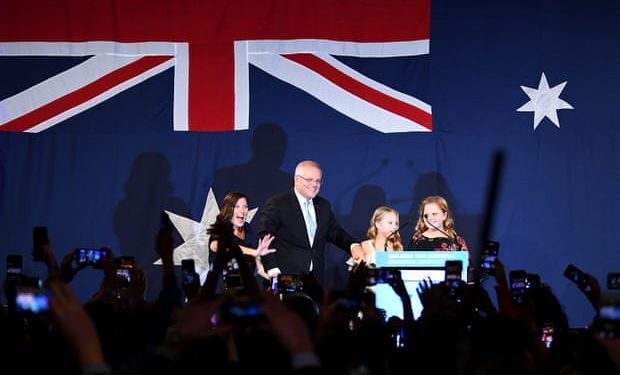Melbourne: The leader of Australia’s opposition Labor Party, Bill Shorten, accepted defeat in a shock result for the country’s federal elections.
The ruling centre-right coalition led by Prime Minister Scott Morrison looks set to return to power in defiance of polling predictions.
However, it is unclear whether it will be able to form a majority government. Exit polls had suggested a narrow victory for the Labor Party for the first time in six years.
The final result of the election may not be known for some hours, but with almost 70% of votes counted the Liberal coalition has won or is ahead in 74 seats in its quest for a 76-seat majority, with Labor on just 65 seats.
Australia has mandatory voting and a record 16.4 million voters enrolled for the election, which returns a new House of Representatives and just over half of the seats in the Senate.
Morrison’s second-in-command, Treasurer Josh Frydenberg, fought off a strong challenge for his seat in Melbourne.
He attributed the Liberal-National Coalition’s predicted victory to “the economic choice” made by voters.
WHY IS THE ELECTION IMPORTANT?
Saturday’s vote is the first general election since political infighting ousted Australia’s fourth leader in a decade. Morrison said he has united his conservative government – a coalition between his Liberal Party and its traditional ally the National Party – in the nine months since he replaced Malcolm Turnbull. But Shorten pressed his case with stark policy alternatives, promising to cut tax breaks for the wealthy and to lower greenhouse gas emissions. Former Liberal Prime Minister Tony Abbott conceded he had lost his seat in Warringah to former Olympic skier Zali Steggall. “I can’t say that it doesn’t hurt to lose,” he told supporters, but added: “I’d rather be a loser than a quitter.”






































